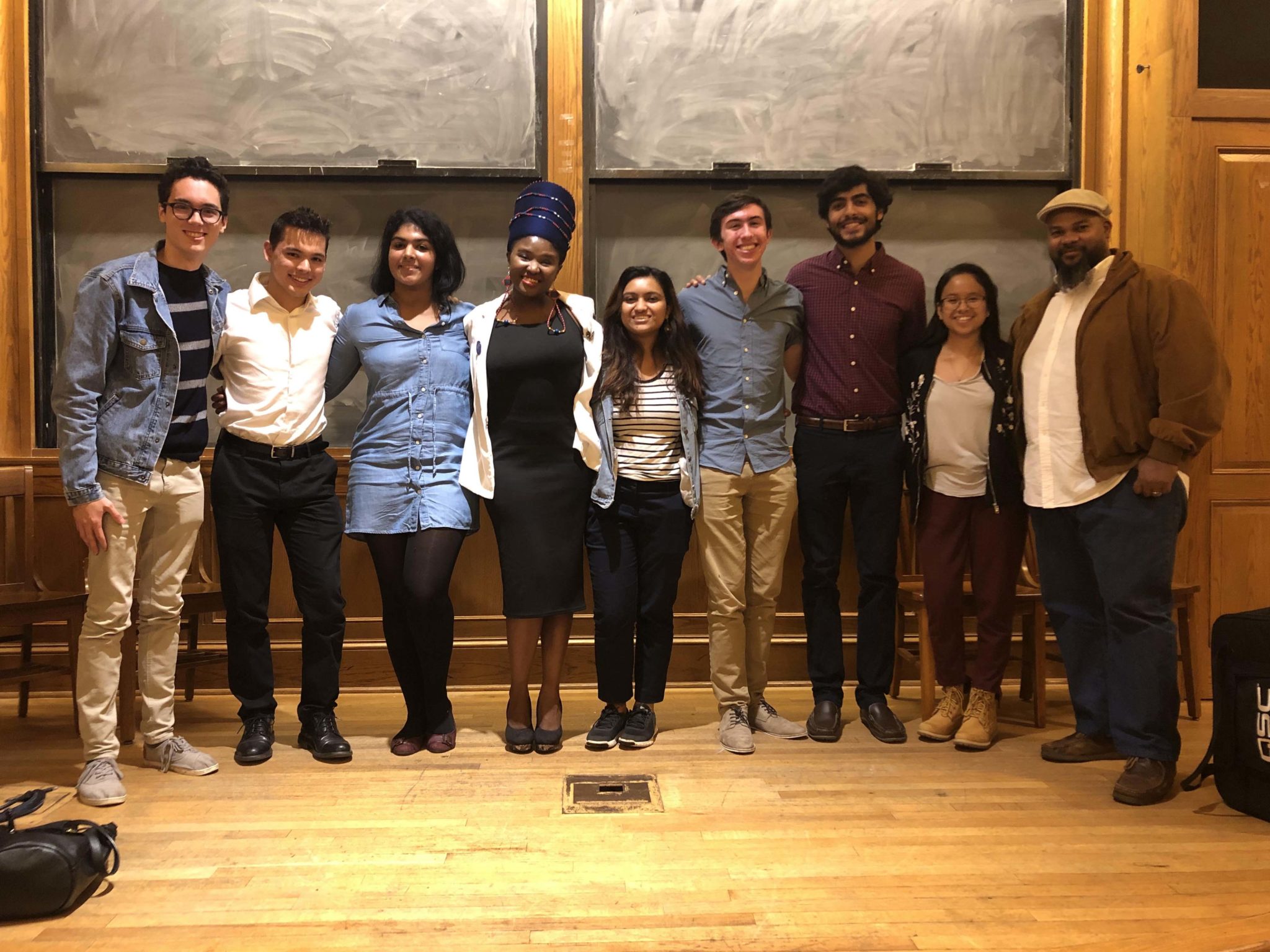
Courtesy of Meghana Mysore
Over 50 people gathered in Linsly-Chittenden Hall on Friday night for a panel discussion on refugee and immigrant advocacy, as well as an African soul music performance.
The discussion was organized by The Yale Globalist — Yale’s undergraduate international affairs magazine — alongside the Yale Refugee Project and the Yale chapter of UNICEF, after a summer of planning. The panel featured Zareena Grewal, an American studies professor at Yale with a research focus on American Muslim communities; Mariana Olaizola LAW ’19, the legal director of the International Refugee Assistance Project at the Yale Law School; and Chris George, the executive director of nonprofit Integrated Refugee and Immigrant Services.
“Compiling all of these speakers was amazing because we were able to see how we could talk about this from several different perspectives,” said Meghana Mysore ’20, co-editor-in-chief of the Globalist. “From the legal perspective, from the humanitarian perspective, from the local perspective … just having them in conversation with one another was really special.”
According to Mysore, the Globalist organized the panel because many of its writers have written about refugee and immigrant issues. In particular, Mysore said that the publication wanted to discuss the media’s portrayal of refugee narratives and crises. The panel also addressed immigration policies and ways for students to get engaged with advocacy.
Grewal, who teaches a undergraduate class called “Narrating the Life of Refugees,” shared a video about Sanctuary Kitchen, a New Haven–based program which hosts cooking classes and demonstrations by refugees who have resettled in Connecticut. The program aims to generate income for refugees, as well as “improve cultural understanding” and “mutual appreciation” — according to Sanctuary Kitchen’s website.
George emphasized the importance of showing empathy for refugees and immigrants. Mysore said that she hopes the event will help the Yale community recognize “that people are struggling beyond the Yale bubble” and galvanize students to get involved. Empathy is the theme for the upcoming issue of the Globalist.
“A lot of what is central to the ways in which we think about … people who are displaced, is that idea of empathy — the idea of understanding people’s stories, or the complex framework of their lives,” Mysore said. “Writing is a way to connect with people, but so too are conversations like this. And so is music.”
For the last 30 minutes of the event, Thabisa, local musician and former top-18 contestant in Idols South Africa, performed a set of music featuring immigrant narratives. The singer had previously performed at New Haven’s iteration of World Refugee Day Festival. Thabisa said she was excited to engage young people and students in these conversations. She performed alongside Chaz Okada ’21.
“So with music, this is how I get to talk to people, say things that were said by other people in big words,” Thabisa said. “That’s how I work with issues of our society with art, just by simply interpreting them, in a way that people can understand.”
Paulina Wells ’21, who is involved with UNICEF at Yale, said that the singing performance was one of her favorite parts of the event. She noted that immigrant issues are relevant to the Yale community, because many Yale students have family or friends who are immigrants.
According to Aastha Kc ’20, co-editor in chief of the Globalist, the event was also intended to be an open space for Yale students to learn about issues immigrants in the community face. She said that opportunities to discuss these important topics are often limited to seminar-style classes.
This sentiment was echoed by Daud Shah ’21, the Globalist’s business director. According to Shah, the publication collaborated with other student groups to host the discussion because the group wanted “to have as many people engaging on these issues as possible.”
Other attendees found the topics covered at the panel relevant to people who live around the world. Attendee Guilherme Brasil de Sousa DIV ’19 said that immigration policies are currently an important political issue in Brazil, which is currently in the middle of a presidential election season.
“I really liked [Olaizola’s input] … helping us understand more how we can be engaged with policy, which is something that’s important,” said de Sousa. “I think it’s great that we have these events, and I think they build a lot of awareness.”
IRIS is a local nonprofit that works to resettle refugees in the community.
Ruiyan Wang | ruiyan.wang@yale.edu .







